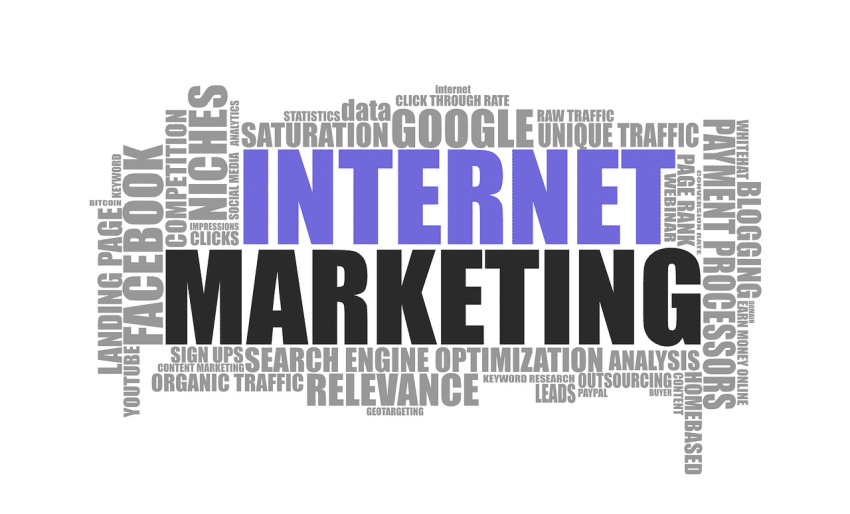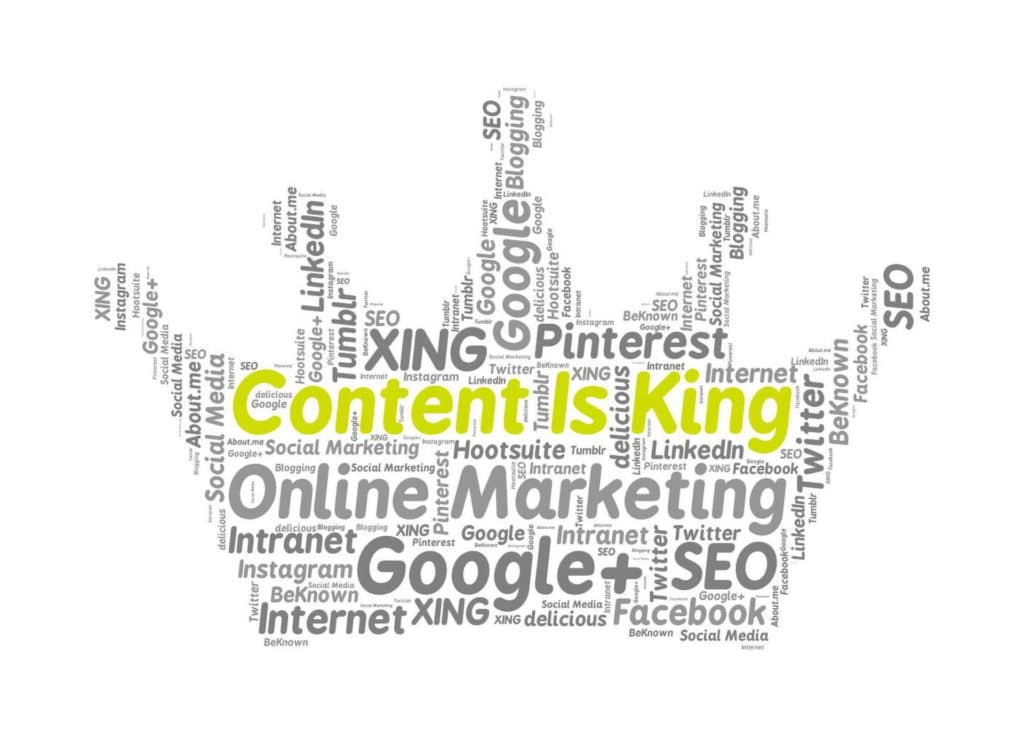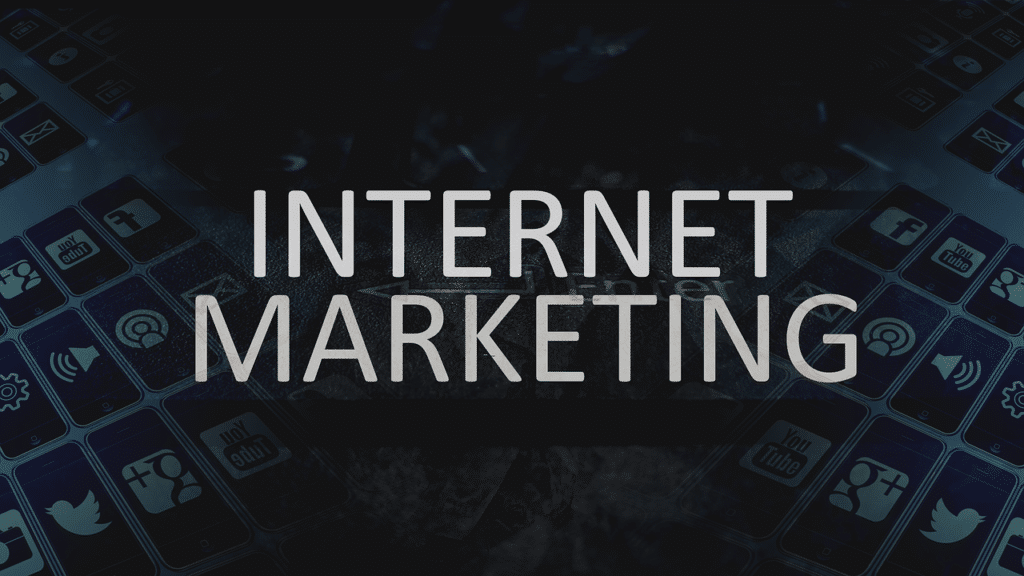Internet Marketing: A Comprehensive Guide
Internet marketing is the art of promoting goods and services online to a global audience. It’s not as simple as it sounds. The internet marketer’s job is to attract prospective customers who are already looking for a product or service. The marketer’s role is to help reel in prospects who have already decided to make a purchase. This can be done through the use of various tactics, such as offering free products or services, providing product reviews, and using search engine optimization (SEO) techniques.
 Effective Internet marketing involves creating targeted ads, using compelling visuals and copy, and experimenting with different ad formats. The goal is to engage with your audience and promote your content effectively. High-quality content is key to success in content marketing. Additionally, successful internet marketers understand the importance of optimizing their approach and achieving continuous growth and success.
Effective Internet marketing involves creating targeted ads, using compelling visuals and copy, and experimenting with different ad formats. The goal is to engage with your audience and promote your content effectively. High-quality content is key to success in content marketing. Additionally, successful internet marketers understand the importance of optimizing their approach and achieving continuous growth and success.
To unlock the secrets of profitable marketing with the power of content, check out our comprehensive guide. Learn how to create compelling content, engage with your audience, and promote your content effectively. With the right strategies and tactics, you can achieve success in the world of Internet marketing.
Items Required Being A Successful Internet Marketer
Being a successful internet marketer requires a range of skills and knowledge. Apart from creating and designing websites, there are other crucial elements to consider when promoting and benefiting from affiliate marketing. One such element is having a thorough understanding of the product or service being offered. Even though most products have their own landing pages, having in-depth knowledge of them helps in directing the right traffic to your website.
Another essential aspect is having a list-building service that enables you to promote new developments relevant to your subscribers or clients in a particular market. This allows you to keep your audience engaged and informed on new products, services, or promotions.
In addition to these elements, there are various Internet marketing strategies that can be employed. These include search engine optimization (SEO), social media marketing, email marketing, pay-per-click advertising (PPC), and content marketing. A combination of these strategies can be used to create a comprehensive marketing plan that targets the right audience and drives traffic to your website.
Effective Internet marketing involves using compelling visuals and copy, experimenting with different ad formats, and creating high-quality content. It’s also important to stay up-to-date with the latest trends and developments in the industry to ensure that your marketing efforts remain relevant and effective. By employing these elements and strategies, you can become a successful Internet marketer and achieve your business goals.
Email marketing is a powerful tool in the digital marketing world. It involves the use of email to promote products, services, or other materials to a targeted audience. Email marketing is an effective way to build relationships with potential and existing customers. By delivering personalized and relevant content to their inbox, you can keep them engaged with your brand, drive traffic to your website, and increase sales.
The benefits of email marketing are numerous. For one, it’s a cost-effective way to reach your target audience, especially compared to traditional marketing methods like print or TV advertising. It’s also highly measurable, allowing you to track open rates, click-through rates, and conversion rates.
 To make the most of email marketing, it’s important to have a well-crafted email list. This involves using lead magnets and other tactics to encourage visitors to your website to sign up for your email list. Once you have a list of subscribers, you can begin sending them targeted emails based on their interests and behavior.
To make the most of email marketing, it’s important to have a well-crafted email list. This involves using lead magnets and other tactics to encourage visitors to your website to sign up for your email list. Once you have a list of subscribers, you can begin sending them targeted emails based on their interests and behavior.
Effective email marketing involves creating compelling subject lines and email copy that grabs the reader’s attention and entices them to take action. It’s also important to experiment with different email formats, such as newsletters, promotional emails, and transactional emails, to see what resonates with your audience.
In conclusion, email marketing is a valuable tool for businesses of all sizes. By delivering personalized and relevant content to your subscribers, you can build relationships with potential and existing customers, increase brand awareness, and boost sales.
What Are The Pros Of Email Marketing?
Email marketing is an effective way to reach out to potential customers and build a loyal customer base. One of the biggest advantages of email marketing is that it allows businesses to send targeted and personalized messages to their subscribers. By segmenting their email list based on user behavior or demographics, businesses can deliver content that is relevant and valuable to their subscribers, increasing the chances of conversion.
Another advantage of email marketing is the low cost compared to other marketing channels. With email marketing, businesses can reach a large number of people with minimal cost and effort, making it an ideal marketing strategy for small businesses and startups. Additionally, email marketing campaigns can be automated, which means businesses can set up a series of messages to be sent to subscribers at specific intervals, saving time and increasing efficiency.
Email marketing also helps businesses build trust and credibility with their subscribers. By consistently delivering high-quality, relevant content, businesses can establish themselves as experts in their field and foster a strong relationship with their audience. This can lead to increased brand awareness, customer loyalty, and ultimately, higher sales.
Email marketing is a powerful tool that can help businesses of all sizes to grow and succeed. By creating targeted and personalized messages, automating campaigns, and building trust with subscribers, businesses can drive traffic to their websites, generate leads, and increase sales.

Newsletter Email Marketing
Newsletter email marketing is the practice of reaching out to an opt-in email list of existing customers with the aim of engaging with them on a regular basis. This marketing strategy involves sending unique and informative content to your subscribers such as company news, product updates, and upcoming events. By using newsletter email marketing, companies aim to maintain strong relationships with their customers and keep them informed about important developments. Through frequent and high-quality communication, companies can establish themselves as experts in their field, build trust and credibility with their audience, and ultimately increase brand awareness and customer loyalty.
Promotional Email Marketing
Promotional email marketing involves the distribution of emails to an existing customer database with the intention of promoting various offerings such as product or service launches, coupons, sales, and special promotions. Unlike newsletter email marketing which focuses on regular company updates, promotional email marketing is geared towards generating immediate customer action. By leveraging the power of targeted promotional emails, businesses can boost sales, increase brand awareness, and foster customer loyalty. With the ability to track and measure the effectiveness of email campaigns, promotional email marketing is a cost-effective and efficient way to reach out to customers and drive business growth.
Understanding Email Marketing Acquisition
Email marketing acquisition is an effective strategy to attract new customers and drive traffic to your website. It involves sending emails to potential customers with the aim of encouraging them to sign up for your services, visit your website and make a purchase.
To get started, you need to identify an Email Service Provider (ESP) that has the technological capability to deliver your email offer to an opt-in list of subscribers. If you haven’t designed an HTML email creative, your chosen ESP can create one for you.
If your goal is to attract new visitors to your site, you can leverage your ESP’s own opt-in email database of permission-based email data to target your audience. Your ESP will deploy your message to a precise target market, and all you need to do is provide the name, subject line, email creative or advertisement, and the landing page that the email recipients will be directed to once they click on the link within your advertisement.
Sending commercial messages via email has become one of the most effective and inexpensive forms of advertising. Research shows that approximately 90% of the population prefers to receive company products and services information through e-newsletters, compared to only 10% that prefer to be notified via Facebook. With the increasing volume of advertising clutter on the internet, email marketing acquisition is a great way to inform potential customers of your offerings and drive sales. By consistently delivering high-quality, relevant content, businesses can establish themselves as experts in their field, build trust and credibility with their audience, and ultimately increase sales.
Page Searches
Paid Search, an advertising platform typically generated by search engines and/or directories, is a powerful tool for businesses to drive traffic and increase sales. Using a cost-per-click (CPC) model, businesses only pay for visitors who click on their ads. Paid search ads appear in two ways: search location and content placement. Ads on the search channel appear when people search for specific terms that businesses have purchased, while ads on the content channel appear on partner sites like news or industrial sites.
Paid search has become increasingly popular, accounting for more than half of global search engine traffic. In a 2018 study by Engine Ready Software, paid search listings (PPCs) outperformed organic searches. Paid search ads help pre-qualify traffic, using direct response ads and branding to attract potential customers. People who click on paid search ads (PPCs) are 17% more likely to buy, with an average of 18% more paid search requests (CPPs) than organic searches. By leveraging the power of paid search, businesses can drive targeted traffic, increase sales, and achieve their marketing goals.
How Can ‘Paid Search’ Achieve Your Goals?
Paid search is a powerful advertising platform that can help businesses achieve their marketing goals quickly and efficiently. With easy-to-use interfaces, campaigns can be up and running the same day, driving instant traffic to your product. Paid search ensures 100% visibility of search results, making it an essential tool for product launches and media mentions. It allows businesses to target specific pages and products on their website, directing traffic exactly where it’s needed. Moreover, paid search can inform and complement other marketing strategies by answering critical questions like “Where and why are people searching for us?” For instance, location-based keywords can generate offline media expenses such as direct response television (DRTV) and replicate search ad copy on the same site. By leveraging the power of paid search, businesses can reach their audience effectively and efficiently, driving sales and achieving their marketing objectives.
How Paid Search Supports Your Audience?
Paid search is an effective way to ensure that your business is accessible to your customers whenever they are looking for you. Unlike organic search results, which can be unpredictable in terms of your business’s visibility, paid search empowers you to control your placement. Additionally, by synchronizing your messaging across channels, paid search can support your DRTV and other offline media initiatives. You can reference special offers that your customers may have seen elsewhere and provide them with a seamless experience from one channel to the next. By leveraging paid search in this way, you can manage your campaigns more effectively and provide a superior customer experience online.
Content Marketing
 Content marketing is all about offering customers valuable, relevant information that helps them solve their problems. By doing so, you’re not only building trust but also promoting your organization in a non-invasive manner. In today’s world of excessive advertising, the most effective way to close a sale is by proving yourself as a trustworthy source first. By providing objective, valuable information, you’re increasing the likelihood of customers purchasing from you when they’re in the market for what you sell. The key is to include a resource box at the end of the content, which briefly highlights your organization, product, or service and asks the consumer to take a specific action. Remember, a hard sell won’t be necessary if you’ve successfully built trust and proven yourself as a credible expert.
Content marketing is all about offering customers valuable, relevant information that helps them solve their problems. By doing so, you’re not only building trust but also promoting your organization in a non-invasive manner. In today’s world of excessive advertising, the most effective way to close a sale is by proving yourself as a trustworthy source first. By providing objective, valuable information, you’re increasing the likelihood of customers purchasing from you when they’re in the market for what you sell. The key is to include a resource box at the end of the content, which briefly highlights your organization, product, or service and asks the consumer to take a specific action. Remember, a hard sell won’t be necessary if you’ve successfully built trust and proven yourself as a credible expert.
How is Content Marketing Distributed?
To reach potential customers, content marketing employs three main distribution channels:
-
Websites Across the Internet: With the abundance of websites on the Internet, content can be distributed across various platforms that are relevant to your target audience. This includes blogs, social media platforms, online publications, and industry-specific websites.
-
Online Discussions and Communities: Engaging with online communities through discussions and forums is an effective way to distribute content. By sharing valuable insights and answering questions, you can establish yourself as a thought leader and promote your brand.
-
Search Engines: Creating optimized content that aligns with popular search terms can help your brand appear in search results. This increases visibility and attracts potential customers to your website.
By utilizing these channels, content marketing can effectively reach a wide audience at a low cost. Leveraging highly trafficked websites, communities, news services, and search engines to share information can increase brand awareness, build trust, and ultimately drive conversions.
Why is Content Marketing Effective?
The internet was created with the purpose of sharing information. This explains why the most profitable business models on the internet are those centered around search and content portals that use information and content to sell advertising.
The reason content marketing works is because it aligns with the fundamental reason people use the internet – to seek information. In fact, between 50 to 65% of searches on the internet are solely focused on gathering information, unrelated to commerce. People seek information to inform their purchasing decisions.
Search engines also prioritize content-rich websites, giving them higher rankings in search results. This is evident when searching for products such as “digital cameras”, where top results often include reviews. Prospective buyers are more likely to click on these reviews to learn more before making a purchase.
Consider providing a review of a digital camera with a link back to your online store selling cameras and a coupon for first-time purchasers. This can help to influence the customer’s decision to buy from you.
On the internet, content is king, even when it comes to sales and marketing. Content marketing works by providing valuable information to potential customers, building trust, and establishing your brand as a thought leader in your industry.



